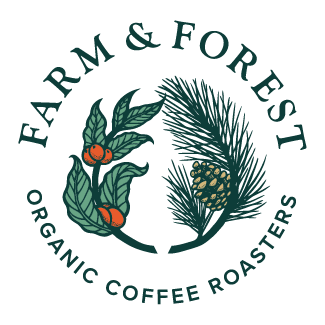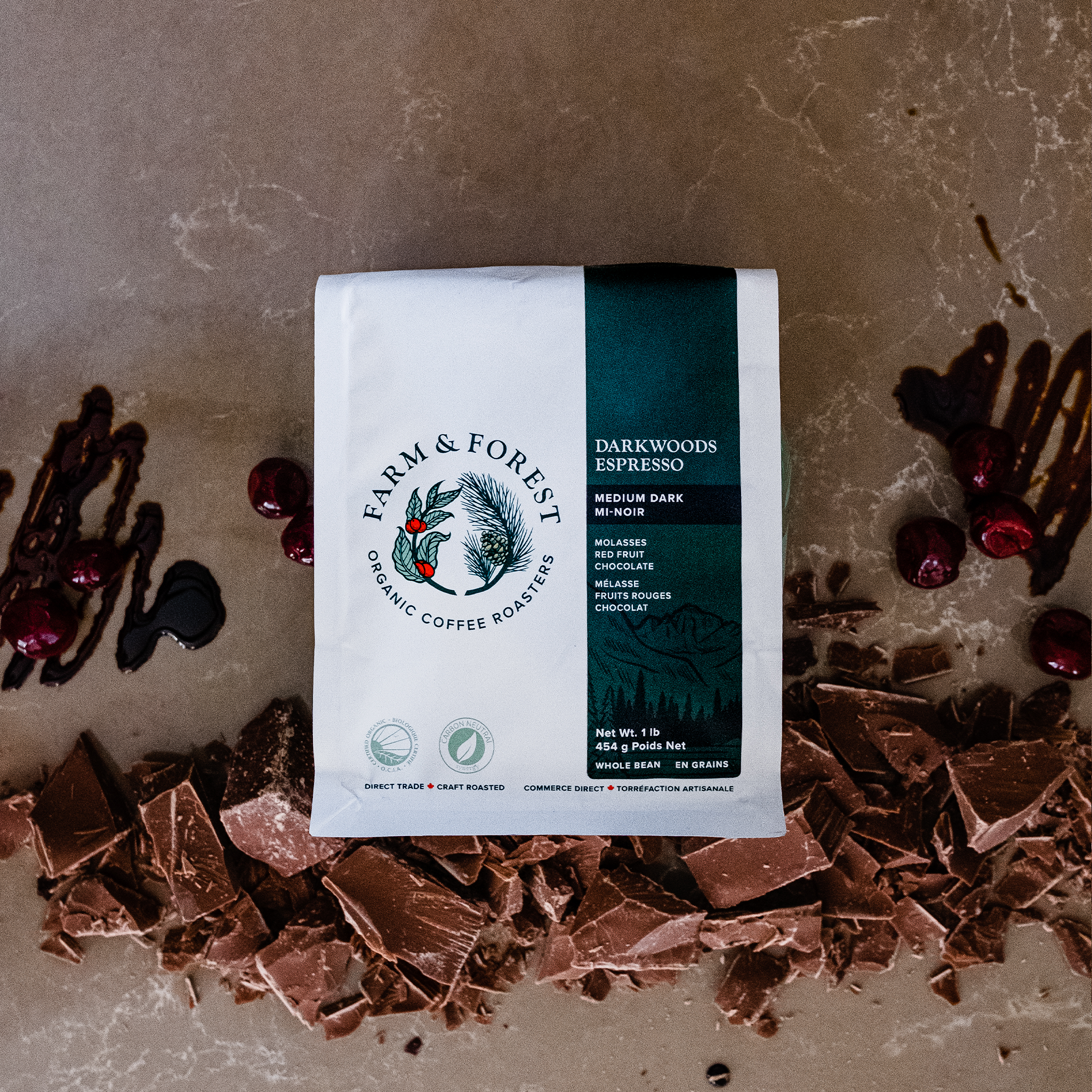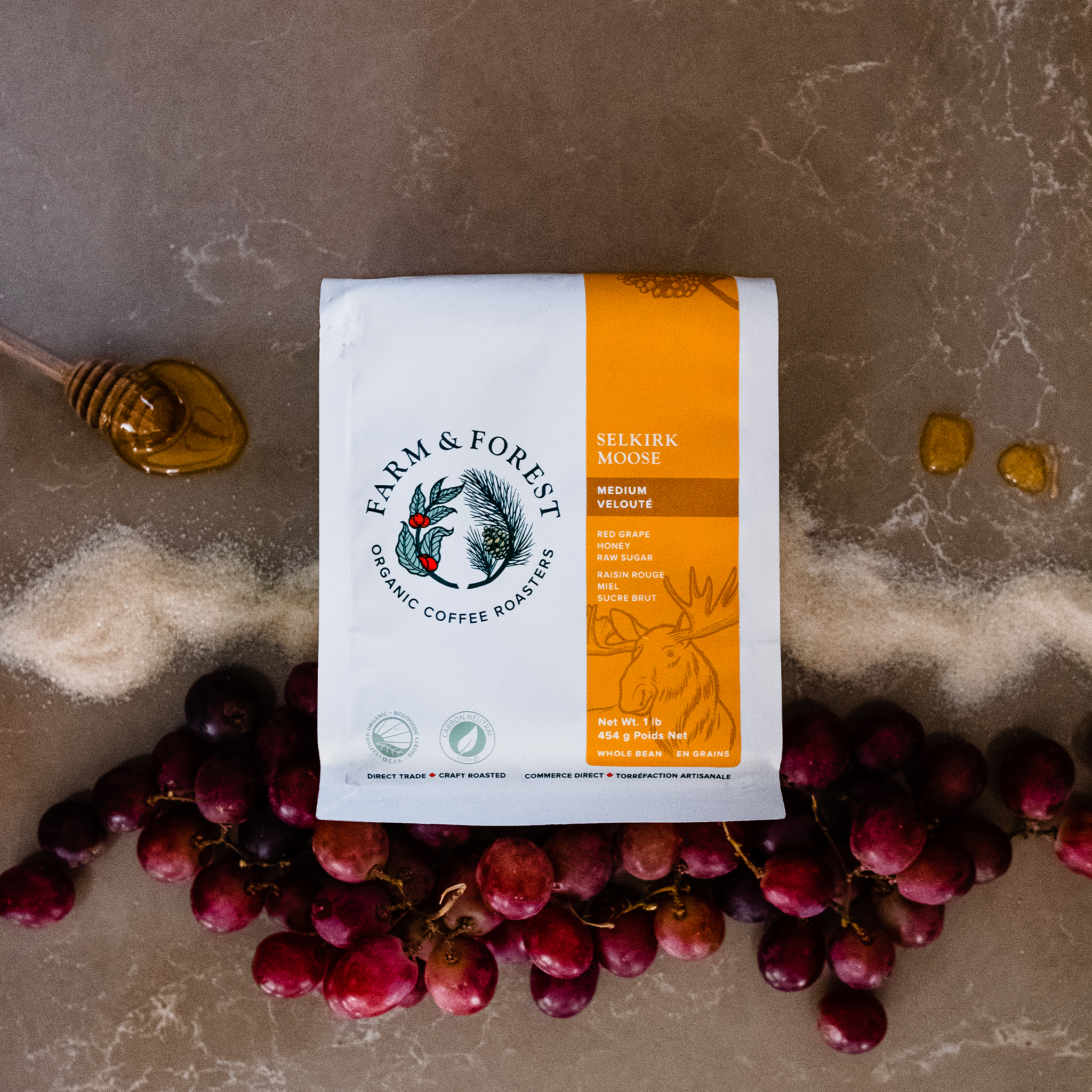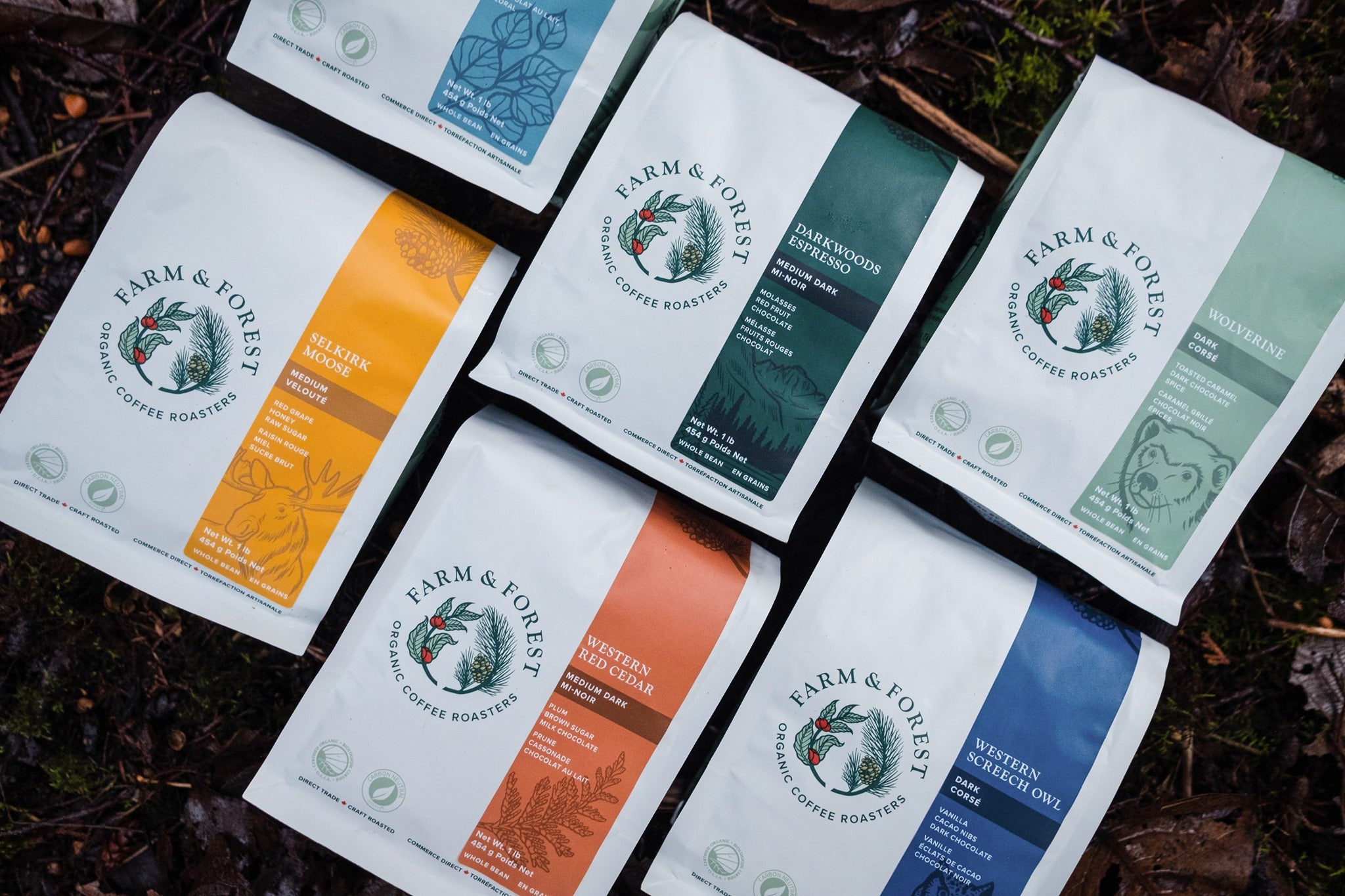How to make your coffee more eco-friendly small steps that make a difference
Coffee isn’t just a morning ritual it’s a cherished daily experience. But in the age of climate awareness, even our coffee habits deserve a closer look. From how your beans are grown to how you brew at home, making your coffee more eco-friendly is easier than you might think. Here’s how small, sustainable changes can have a big impact without sacrificing taste or quality.
Why Making Eco-Friendly Coffee Choices Matters
Each cup of coffee comes with an environmental footprint. The coffee industry contributes to deforestation, carbon emissions, and waste through unsustainable farming, excessive packaging, and single-use brewing methods. By shifting towards more sustainable coffee practices, you not only reduce your carbon footprint but also support ethical sourcing and responsible farming.
Buy Sustainable and Ethically Sourced Beans
Start at the source. Choose certified organic, Fairtrade, Rainforest Alliance, or Direct Trade coffee beans. These certifications ensure the beans were grown using environmentally responsible methods, often supporting smallholder farmers and biodiversity.
Choose Reusable AND LOWER WASTE OPTIONS
One filter every time you brew adds up qith time, so buying reusable options is always helpful. Also, buying whole beans in bulk can reduce packaging waste dramatically.
Ditch Disposable Cups and Lids
Every year, Canadians toss away over 1.5 billion disposable coffee cups. Many of these can’t be recycled due to plastic linings. The solution? Brew at home, or use a reusable coffee mug or thermos wherever you go. Stainless steel, ceramic, or glass options are available to confort you throughtout the day.
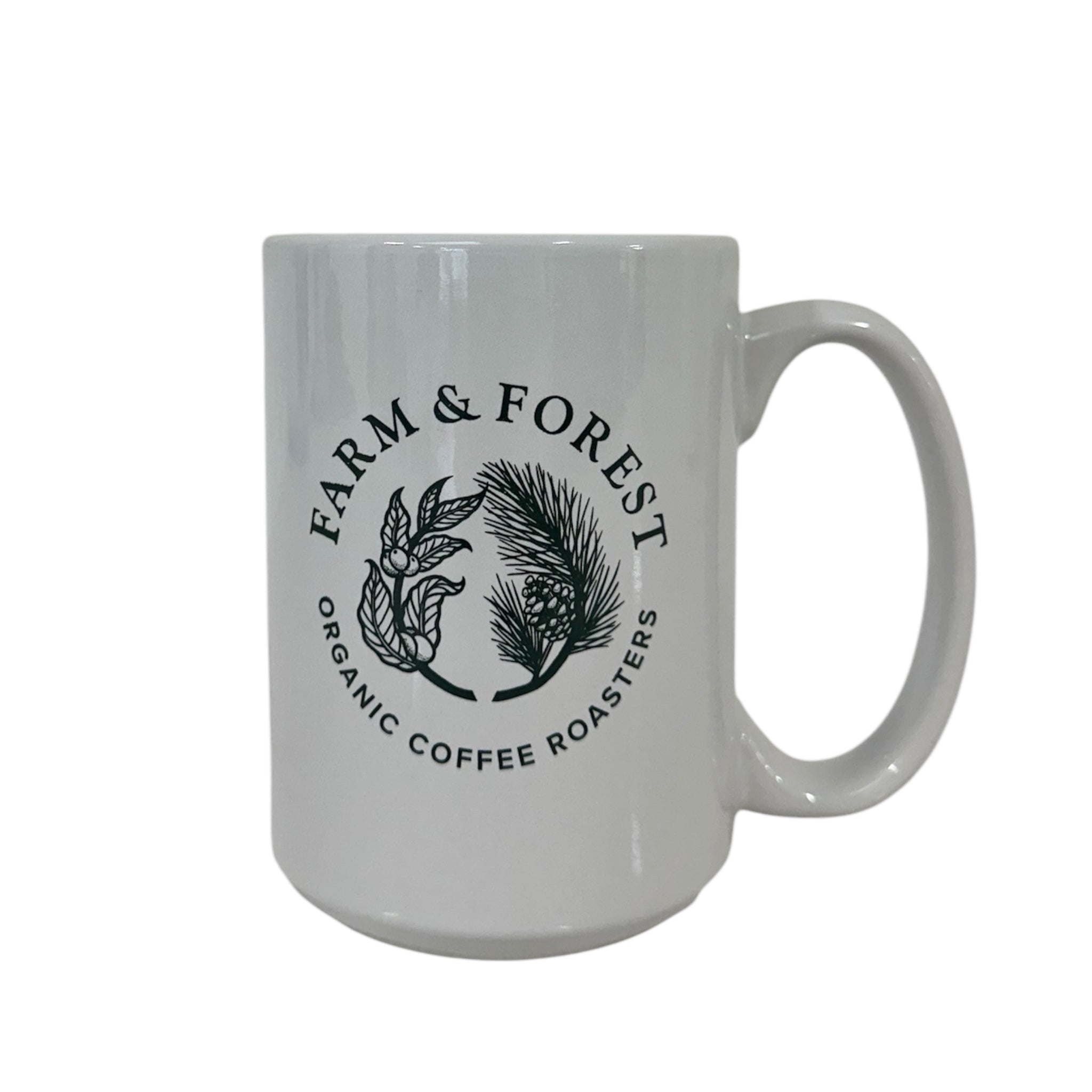
Compost Your Coffee Grounds
Used coffee grounds are a fantastic composting material. Rich in nitrogen, they’re perfect for garden compost bins or even directly sprinkled around acid-loving plants like blueberries and tomatoes. You can also use them to make a natural body scrub or odour absorber.
Use Energy-Efficient Brewing Methods
Electric coffee makers and pod machines consume energy even in standby mode. Try manual brewing methods like the French press, AeroPress, or pour-over — these require less energy and often produce a cleaner cup. If you stick to electric machines, choose energy-efficient models and unplug when not in use.
Support Local Roasters
Buying coffee from local, small-batch roasters reduces the environmental cost of long-distance shipping and supports local economies. Farm & Forest Coffee offers carbon-neutral shipping, and subscription models that reduce trips to the store.
Brew Only What You’ll Drink
Wasting coffee isn’t just wasting water and beans, it's wasting all the resources that went into producing it. Brew just enough, or store leftovers in the fridge for iced coffee later.
Educate Others and Share the Habit
Whether it’s your roommate, coworker, or social media followers, encourage others to adopt greener coffee habits. Sharing resources or lending out a French press can spark real change.
Check our selection that not only is sourced directly, but is carbon-neutral, certified organic, and supports protecting Canadian biodiversity!
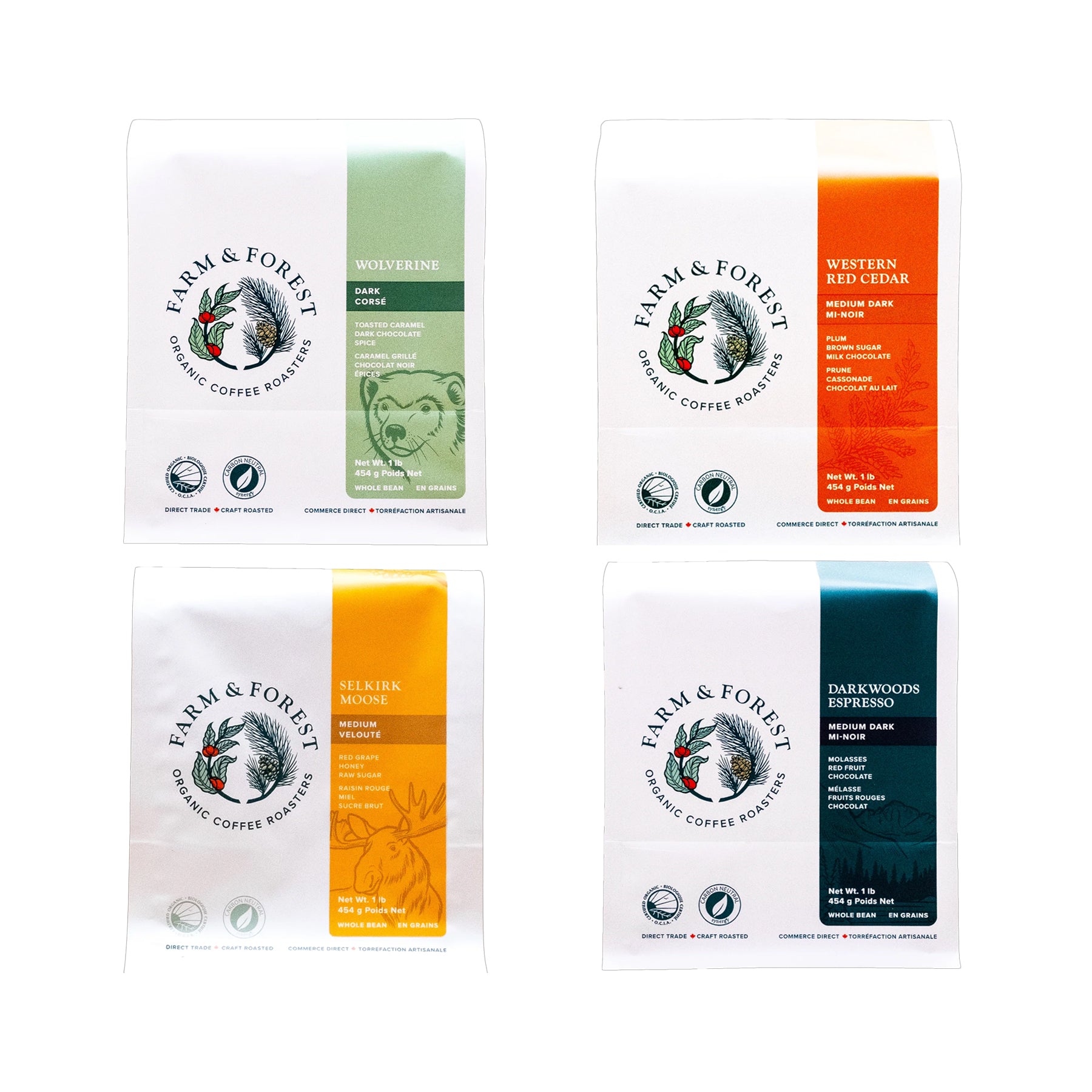
Sampler Pack 4x 200g: Wolverine, Western Red Cedar, Selkirk Moose, Dark Woods Espresso
Sold out
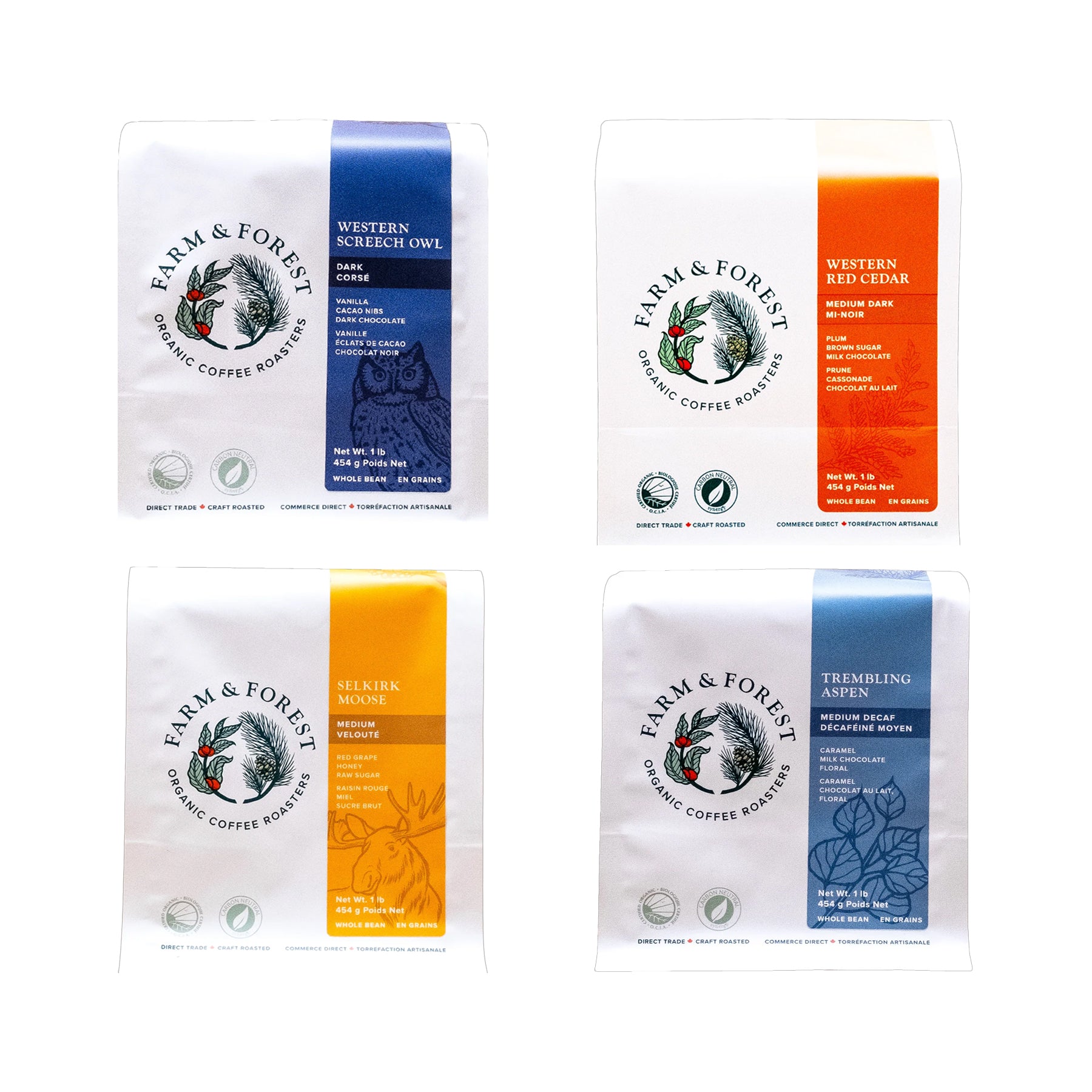
Sampler Pack 4x 200g: Western Screech Owl, Western Red Cedar, Selkirk Moose, Trembling Aspen
Sold out
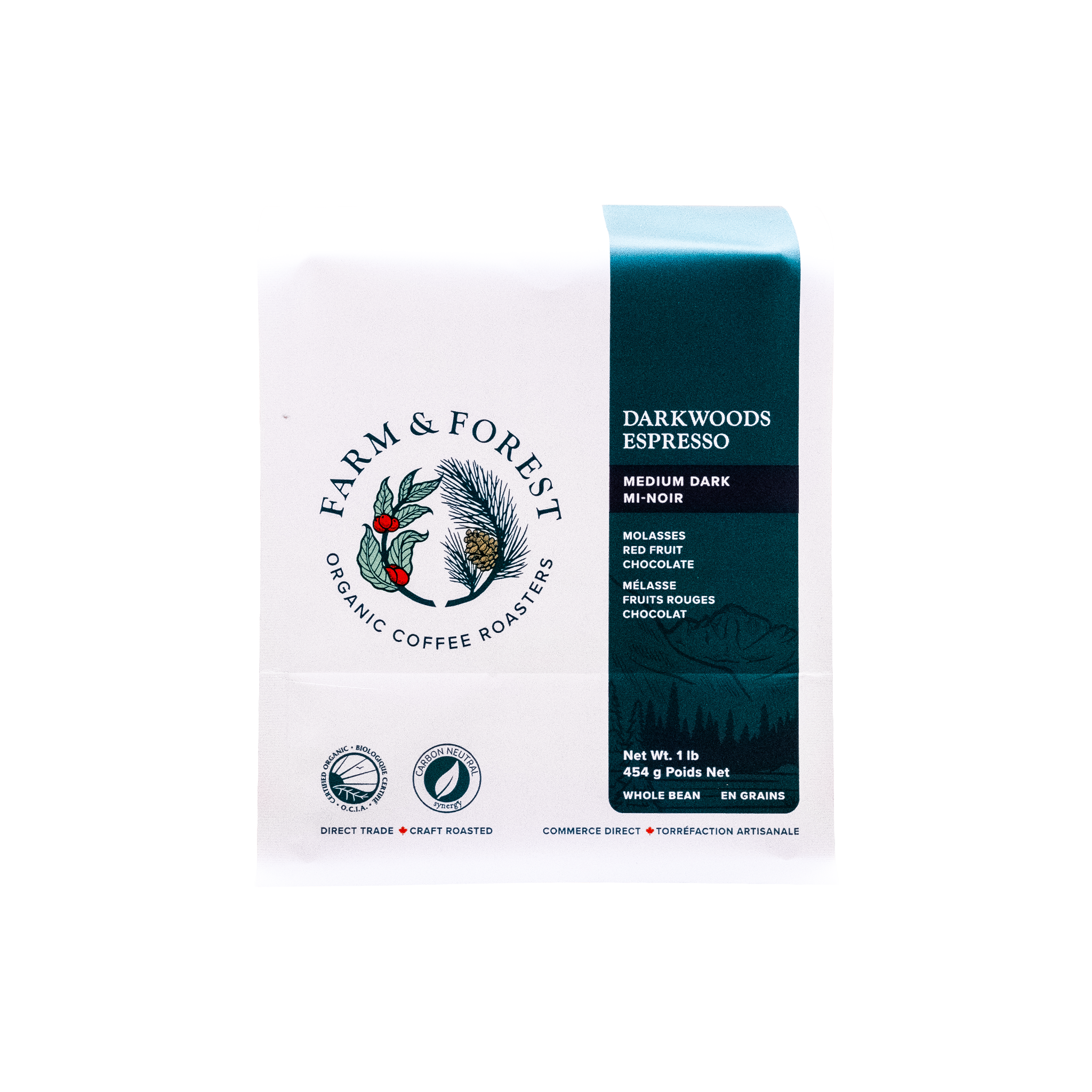
Organic Darkwoods Espresso
Sold out
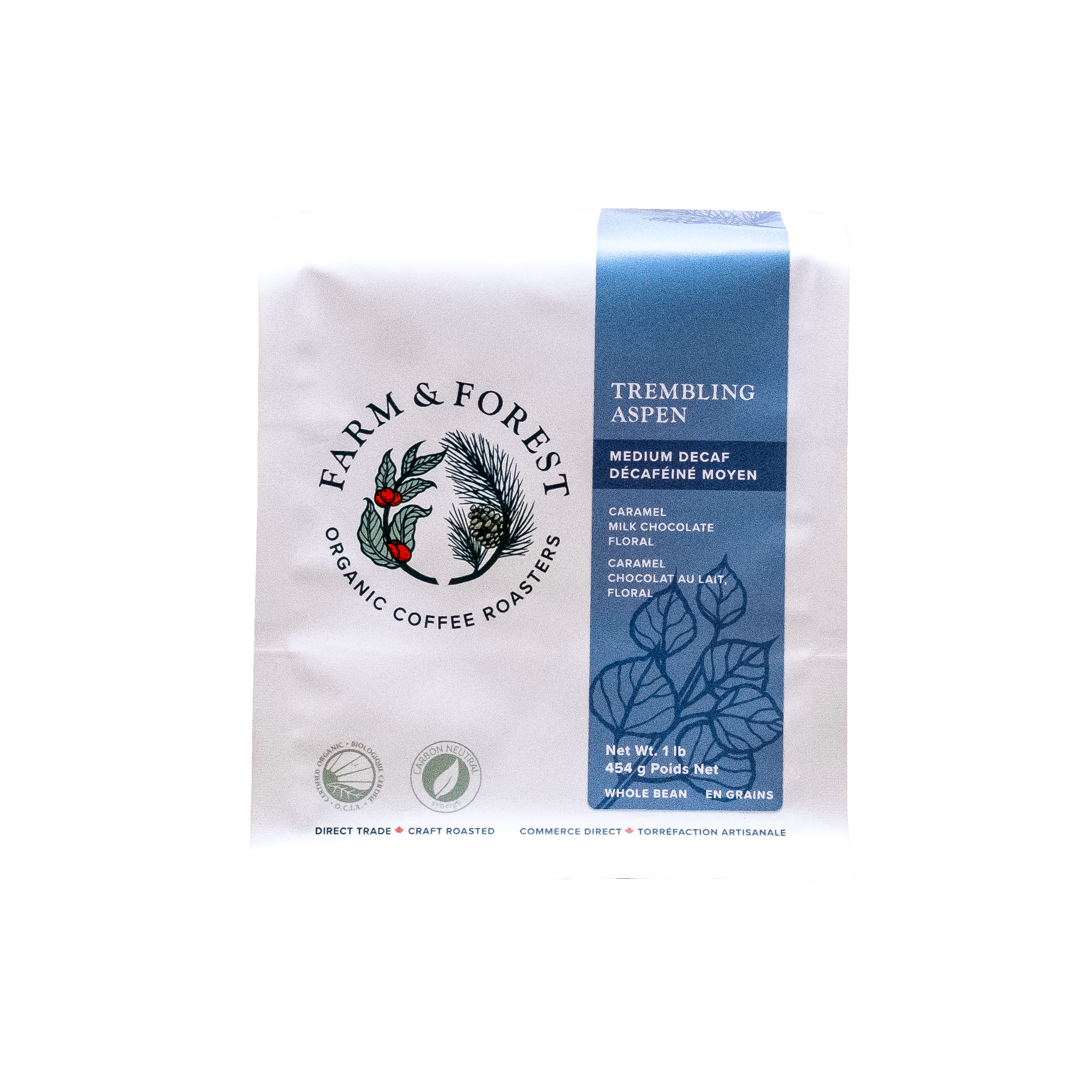
Organic Trembling Aspen SWP Decaf Coffee
Sold out
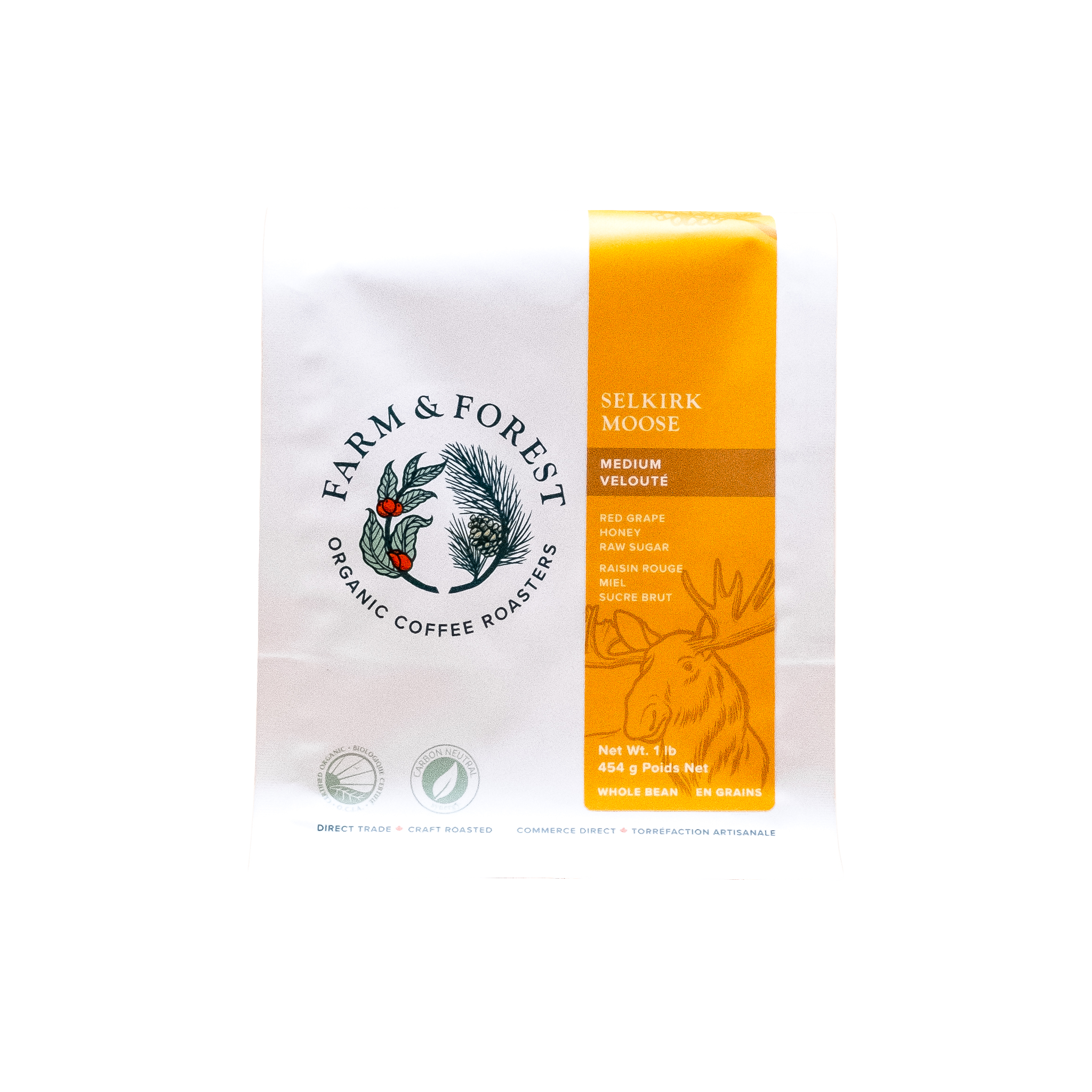
Organic Selkirk Moose Coffee
Sold out
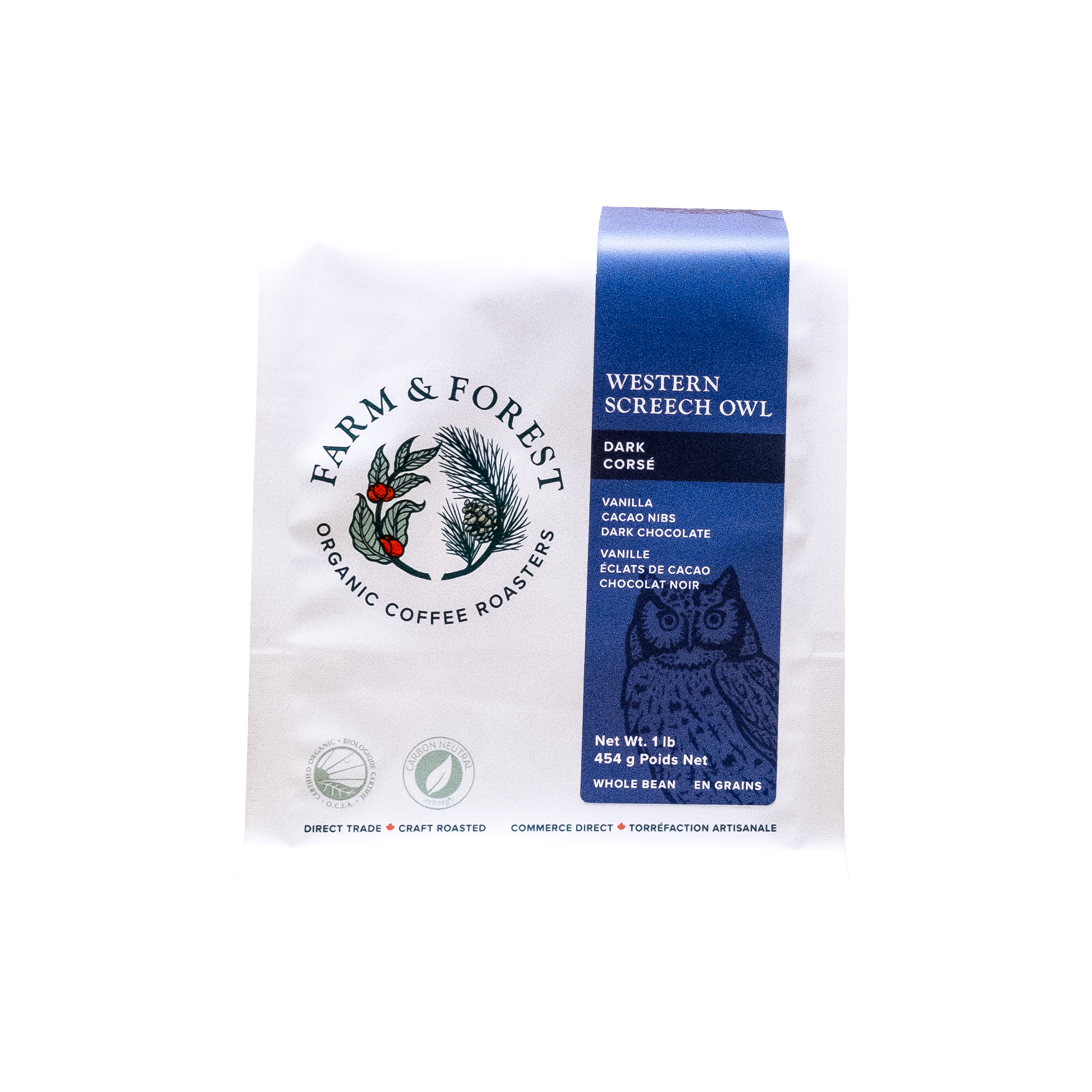
Organic Western Screech Owl Coffee
Sold out
FAQs: Eco-Friendly Coffee Questions Answered
What is the most eco-friendly way to make coffee at home?
Manual brewing methods like the French press, pour-over (with reusable filters), or AeroPress use less electricity and produce less waste than pod or drip machines.
Are compostable coffee pods really compostable?
Only if they’re certified for industrial composting, most require commercial facilities, not home compost bins. Check local composting rules or avoid pods as they also cost 10 times more per cup when compared to specialty coffees in the market.
Can I compost coffee filters?
Yes, if they are unbleached and paper-based. Avoid filters with plastic or chlorine bleach, and always check for “compostable” labels.
Is instant coffee more eco-friendly?
Surprisingly it is in some ways. It uses less water and energy in preparation, but the sourcing and packaging still matter. Choose brands that use sustainable beans and recyclable packaging.
